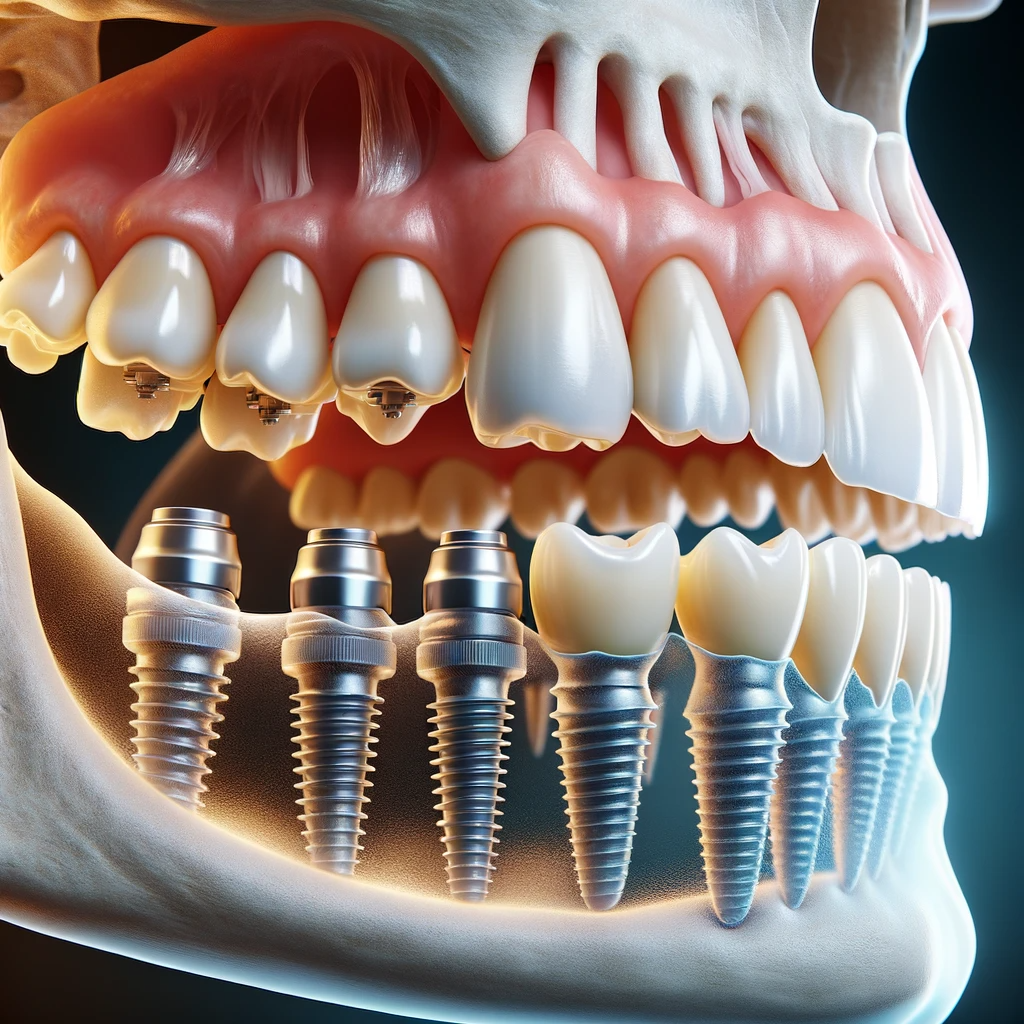Examine This Report about Dental Sense
Table of ContentsThings about Dental SenseThe 7-Minute Rule for Dental SenseDental Sense Can Be Fun For EveryoneWhat Does Dental Sense Do?
are medical tools operatively implanted into the jaw to restore a person's ability to chew or their appearance. They supply support for synthetic (phony) teeth, such as crowns, bridges, or dentures. When a tooth is shed due to injury or illness, a person can experience problems such as fast bone loss, defective speech, or modifications to eating patterns that cause discomfort.Oral dental implant systems contain an oral implant body and dental implant joint and may also consist of a joint addiction screw. Root canal procedure. The oral implant body is operatively placed in the jawbone in place of the tooth's root. The dental implant joint is typically connected to the dental implant body by the joint fixation screw and extends through gums right into the mouth to support the connected synthetic teeth
(https://medium.com/@matthewmusic33101/about)Framework of The Dental Implant System choosing oral implants, speak with your oral copyright about the potential advantages and dangers, and whether you are a candidate for the procedure. Points to consider: Your general health and wellness is a crucial element in figuring out whether you are a good candidate for dental implants, for how long it will certainly take to recover, and the length of time the implant might stay in location.
Smoking may impact the healing procedure and decrease the long-term success of the implant. The recovery process for the implant body might take several months or longer, during which time you commonly have a momentary joint instead of the tooth. the dental implant treatment: Very carefully comply with the oral health directions offered to you by your oral company.
Getting The Dental Sense To Work
Implant failure can result in the demand for an additional surgery to fix or replace the implant system. Brings back the ability to chew Brings back aesthetic appearance Helps maintain the jawbone from shrinking because of bone loss Maintains the wellness of the surrounding bone and gums Helps keep surrounding (neighboring) teeth stable Enhances high quality of life Damage to surrounding natural teeth during implant placement Injury to the surrounding tissues throughout surgical treatment, such as sinus perforation Injury throughout surgical treatment (for instance, crack of bordering jawbone) Poor function, such as seeming like the teeth do not attack together typically An experience that the tooth hangs or twisting in position resulting from an abutment screw loosening Implant body failing (looseness of the dental implant body) due to systemic infection, which might be most likely in individuals with unchecked diabetes mellitus due to regional infection in bone and gum tissues sustaining the dental implant body due to delayed recovery, which may be most likely in clients that smoke Problem cleaning the periodontals around the dental implant, resulting in inadequate dental health Untreated gum disease Post-surgical numbness because of nerve impingement Dental veneers cost or damage Always alert health care providers and imaging service technicians that you have dental implants before any kind of magnetic resonance imaging (MRI) or x-ray treatments.
FDA is not familiar with any unfavorable events reported for MRI or x-ray procedures with oral implants. Dental implants systems are normally constructed from products that follow international consensus criteria of the International Company for Standardization (ISO) or ASTM International. These requirements have information of what makes a risk-free product.

An oral implant is a framework that changes a missing out on tooth. With screw-like gadgets, the surgeon inserts an implant into the jawbone, and it acts as a support for a synthetic tooth, called a crown.
Excitement About Dental Sense
Some individuals are not eligible for oral implant surgical procedure. It is for dental surgeons to operate individuals with: acute illnessuncontrollable metabolic diseasebone or soft cells disease or infectionIf these issues are solved, an individual can have the surgery. In, dental specialists avoid running on people with: If individuals with any one of the above undertake dental implant surgery, there is a greater risk of the implant failing.

Oral dental implant surgical procedure is a personalized procedure. It's not the very same for everyone. Yet the complying with provides a general introduction of what you can anticipate your dentist, oral doctor, periodontist or prosthodontist to do: Put the dental implant surgically. Provide you time to recover. Affix the article and final crown, bridge or denture.
Next, your surgeon will carefully put the oral implant into your jaw. If your implant is near the front of your mouth, your dental practitioner will make a short-lived tooth for you to use till you recover.
Excitement About Dental Sense
Your provider can inform you what to expect in your circumstance. Throughout the recovery stage, your jawbone should fuse to the oral implant. This process, called osseointegration, is critical for security and long-lasting success. This process can take anywhere from 3 to 9 months. Sometimes, it might take longer.
As soon as your dental implant heals, your dental practitioner can connect the abutment (tiny connector post) and your last remediation (crown, bridge or denture). This typically takes about one hour to finish and may need a second minor surgical procedure. You shouldn't really feel any discomfort during your oral implant procedure because your service provider will certainly use medication to numb your gum tissues.